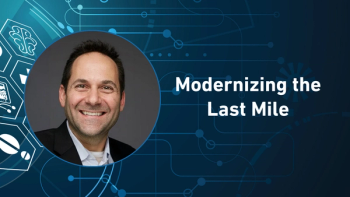
Merck CEO, Kenneth Frazier, leaves Trump manufacturing council
A protest against not protesting; unclear consequences for pharma’s place on the White House council
Connecting the dots between President Trump's American Manufacturing Council, the US pharma industry, and the tragic and divisive events in Charlottesville, VA on the weekend of Aug. 12 is not easy. But it was probably comparably difficult to make the calculations that Kenneth Frazier, Merck chairman and CEO did when his appointment was announced in January, just days after President Trump took office. Frazier's Aug. 15 resignation from the Council, was for all intents and purposes a protest against the President's ambivalent denunciation of the violence precipitated as white nationalists, neo-Nazis and other supremacist groups held a rally in Charlottesville. A counter-protester was killed during the day.
The full text of Frazier’s statement, released on Twitter, reads: "I am resigning from the President's American Manufacturing Council. Our country's strength stems from its diversity and the contributions made by men and women of different faiths, races, sexual orientations and political beliefs. America's leaders must honor our fundamental values by clearly rejecting expressions of hatred, bigotry and group supremacy, which run counter to the American ideal that all people are created equal. As CEO of Merck and as a matter of personal conscience, I feel a responsibility to take a stand against intolerance and extremism."
Within an hour of Frazier’s announcement, President Trump was on his Twitter account: “Now that Ken Frazier of Merck Pharma has resigned from President’s Manufacturing Council, he will have more time to LOWER RIPOFF DRUG PRICES!” he wrote. Later the same day, he wrote: ”<at>Merck Pharma is a leader in higher & higher drug prices while at the same time taking jobs out of the U.S. Bring jobs back & LOWER PRICES!”
The action of Frazier (who is African-American) was followed by two other Council executives’ resignations, for more or less the same reasons (however, Trump did not call out those withdrawals). And while Frazier was on the Council to bring a pharma perspective, that role will be carried on by another Council member, Alex Gorsky, chairman and CEO of J&J. (The overall Council has a fairly broad representation of business and union leaders.) Trump’s comments, early this year and during his presidential campaign, to “do something” about drug prices, have been reiterated many times in the business press, but if there’s one thing Trump-watchers have learned in the past eight months, it’s to distinguish between what he says and what his administration does.
15 August update: The day after Merck's Frazier resigned from the American Manufacturing Council, J&J's Gorsky issued a statement explaining why he will stay on the panel. While stating that "I respect [the recent Council resignations] as a matter of personal conscience," the company "has a responsibility to remain engaged." He goes on to refer to the company's corporate value statement (the "
For his part, President Trump continued his bashing, tweeting that "For every CEO that drops out of the Manufacturing Council, I have many to take their place. Grandstanders should not have gone on. JOBS!"
17 August update: Whatever distinctions might have been made about ensuring life sciences representation on the White House's manufacturing council, as well as another group of corporate chieftains, the Strategy and Policy Forum, it all went over the cliff as there was an organized mass exodus of executives from both groups during Aug. 15-16. When informed of the exodus (before most of the departures were announced, according to press reports), President Trump disbanded both groups, sending a tweet: "Rather than putting pressure on the businesspeople of the Manufacturing Council & Strategy & Policy Forum, I am ending both. Thank you all!" Although the president took aim at specific companies just before and in the early weeks of his administration, it's doubtful that he can confront the entirety of the broad business representation of the both groups. Nevertheless, the shutdown of the business-government forums, so suddenly, leave room for much speculation.
Newsletter
Stay ahead in the life sciences industry with Pharmaceutical Commerce, the latest news, trends, and strategies in drug distribution, commercialization, and market access.



